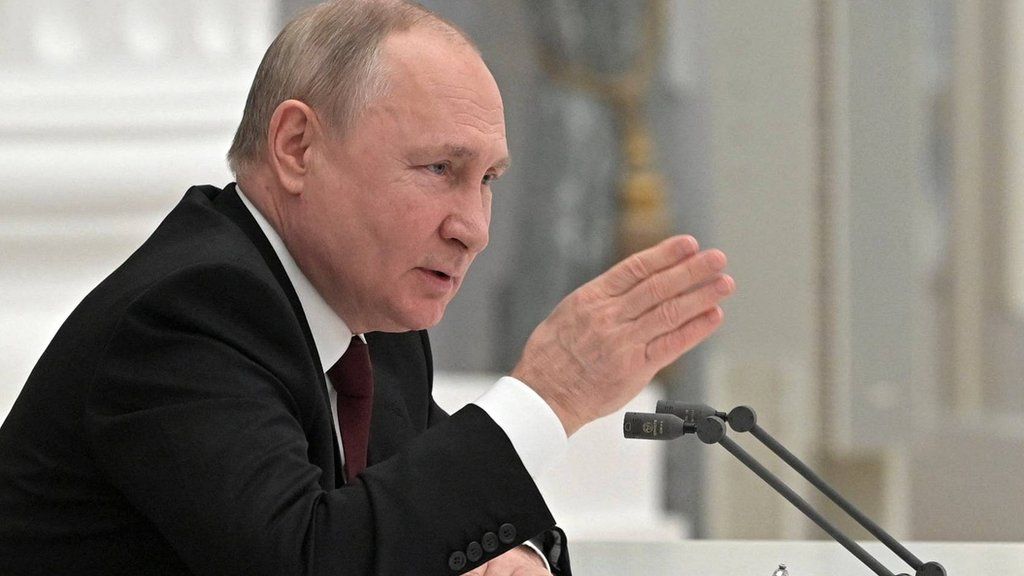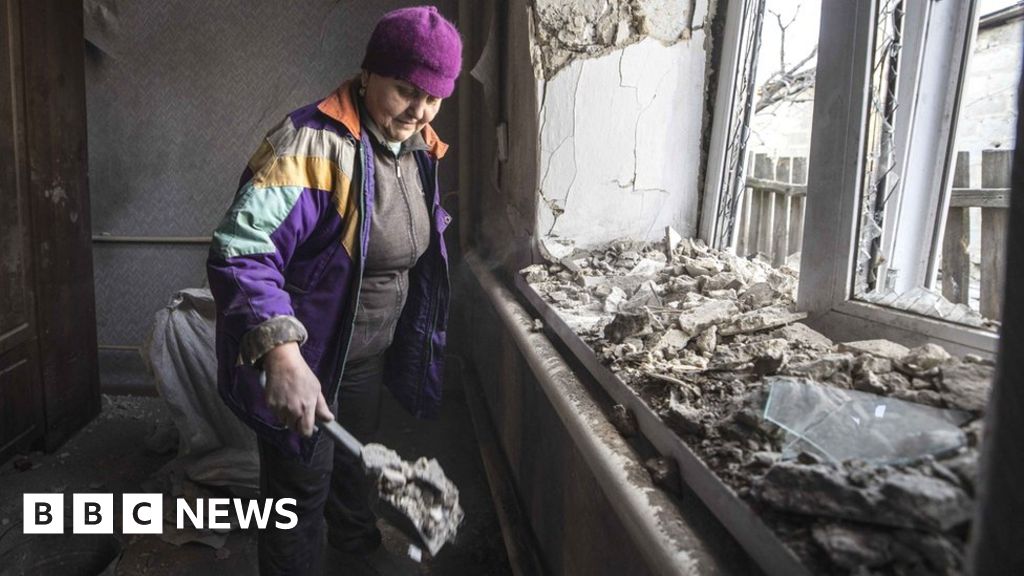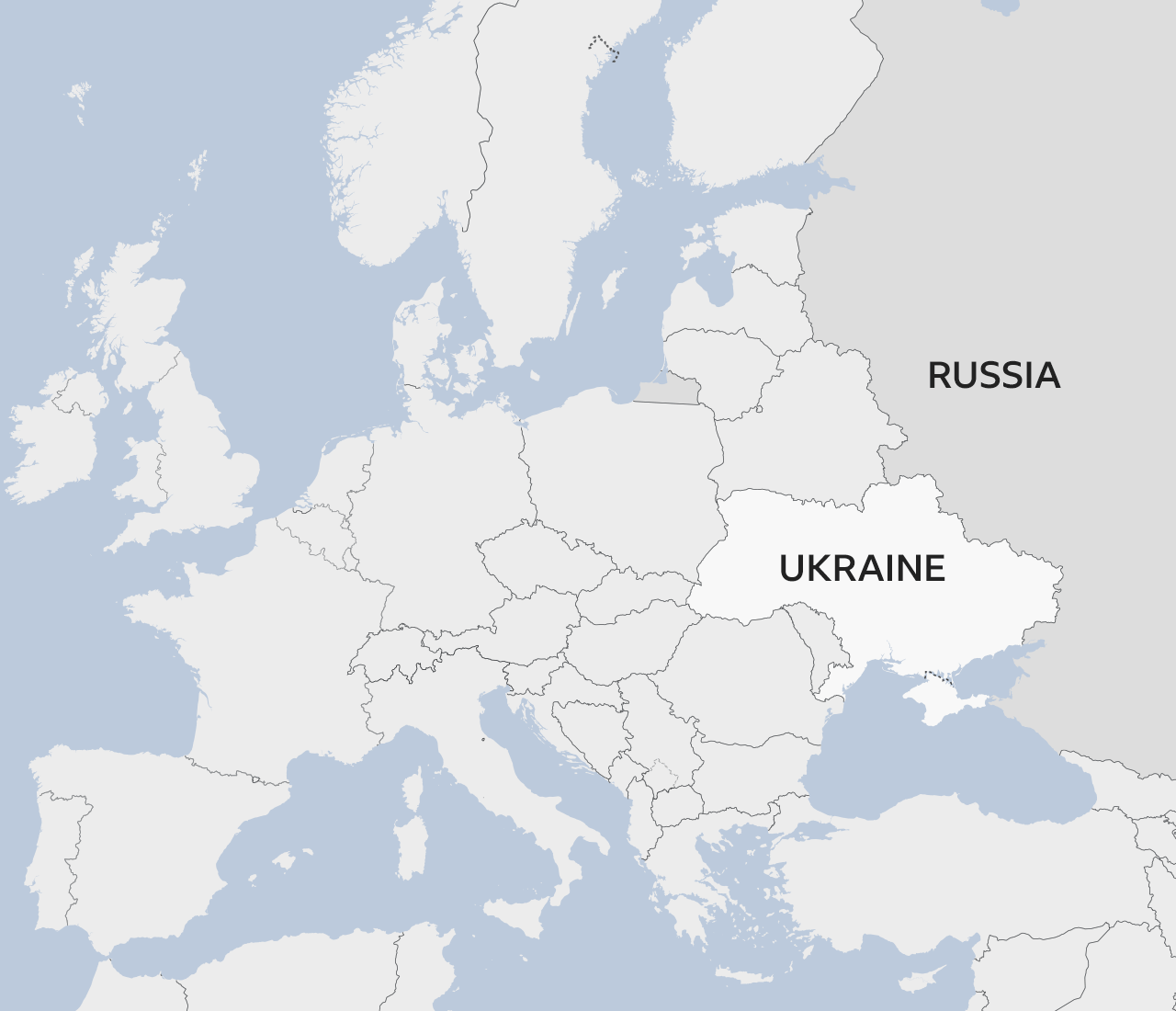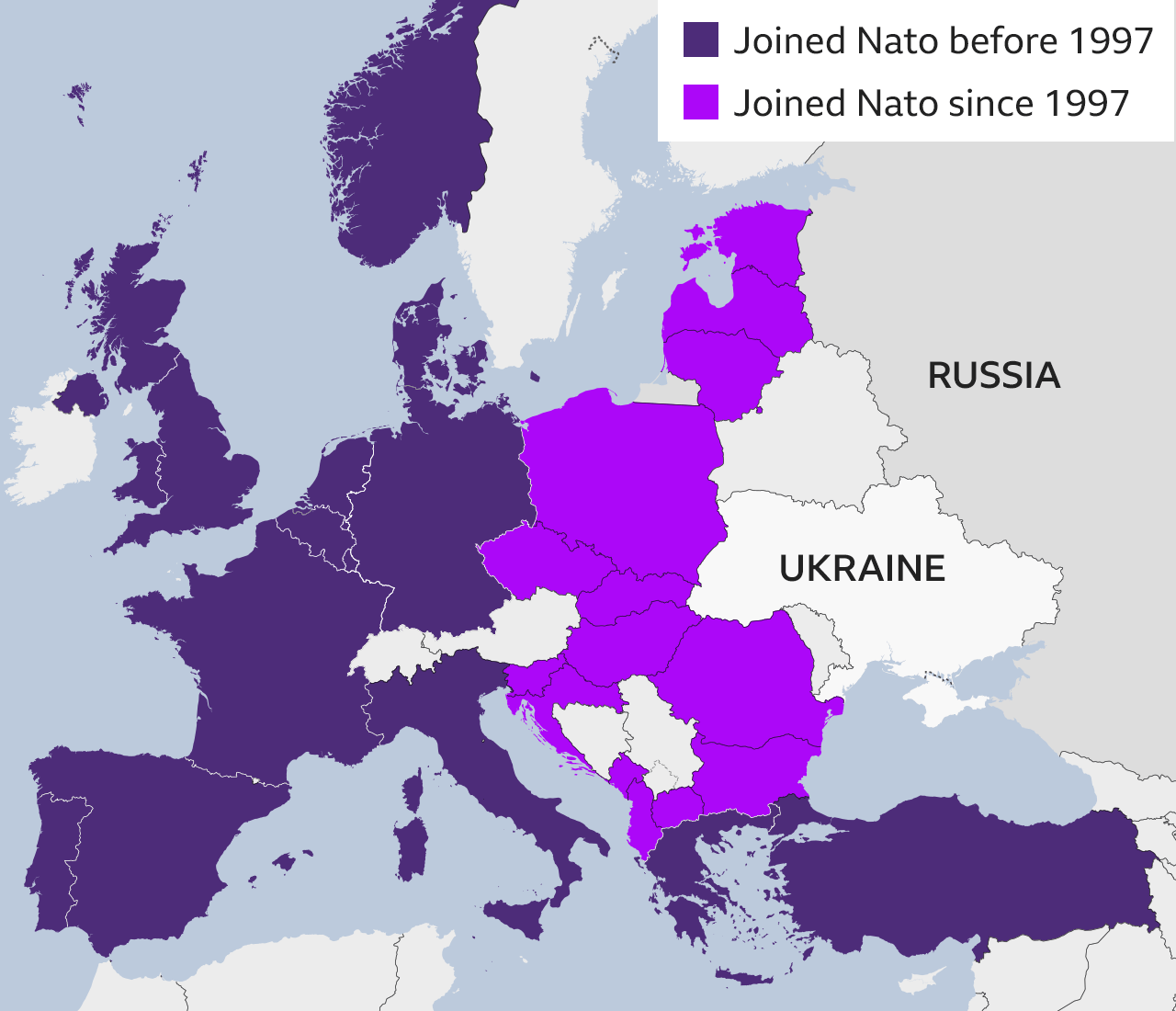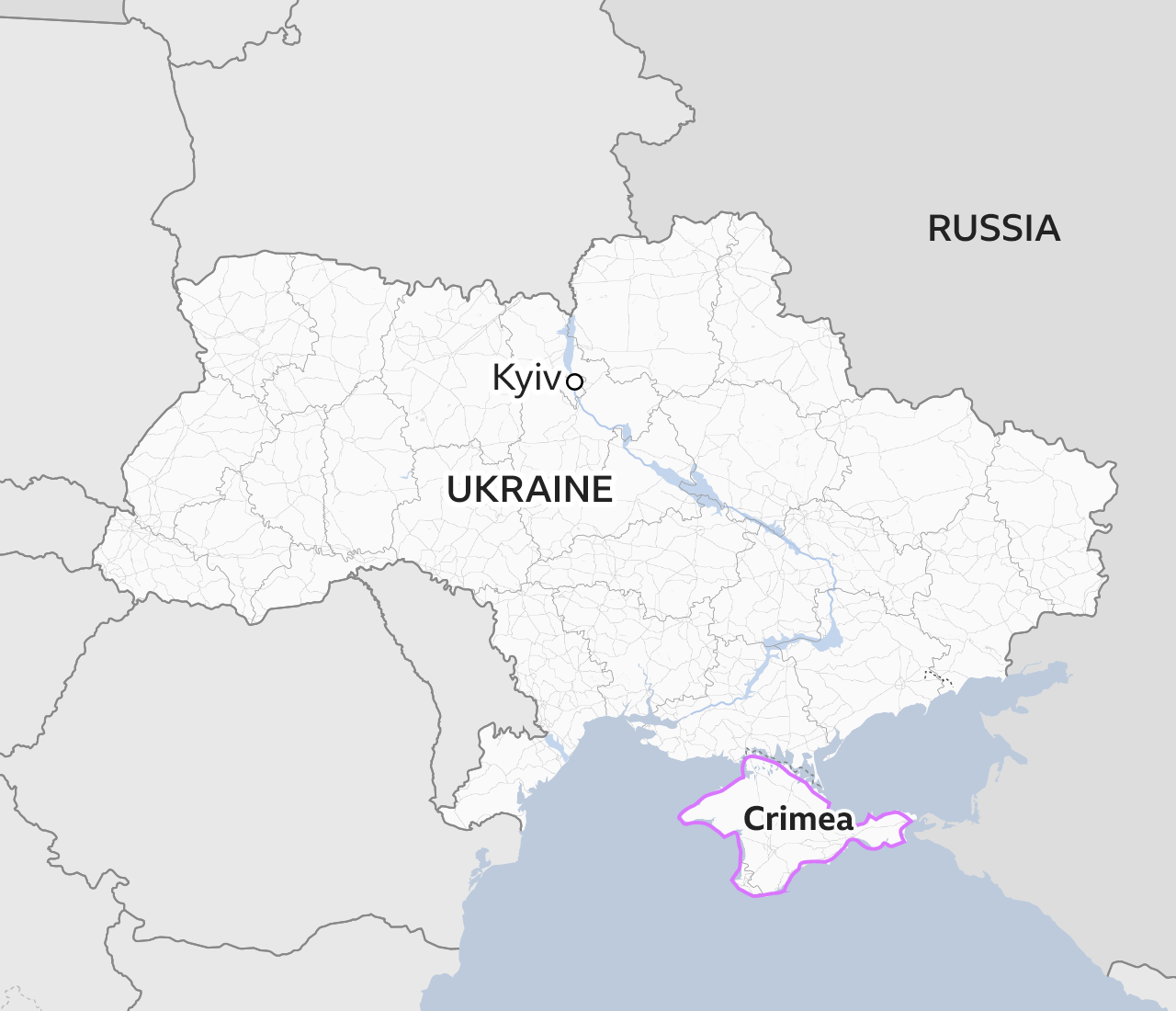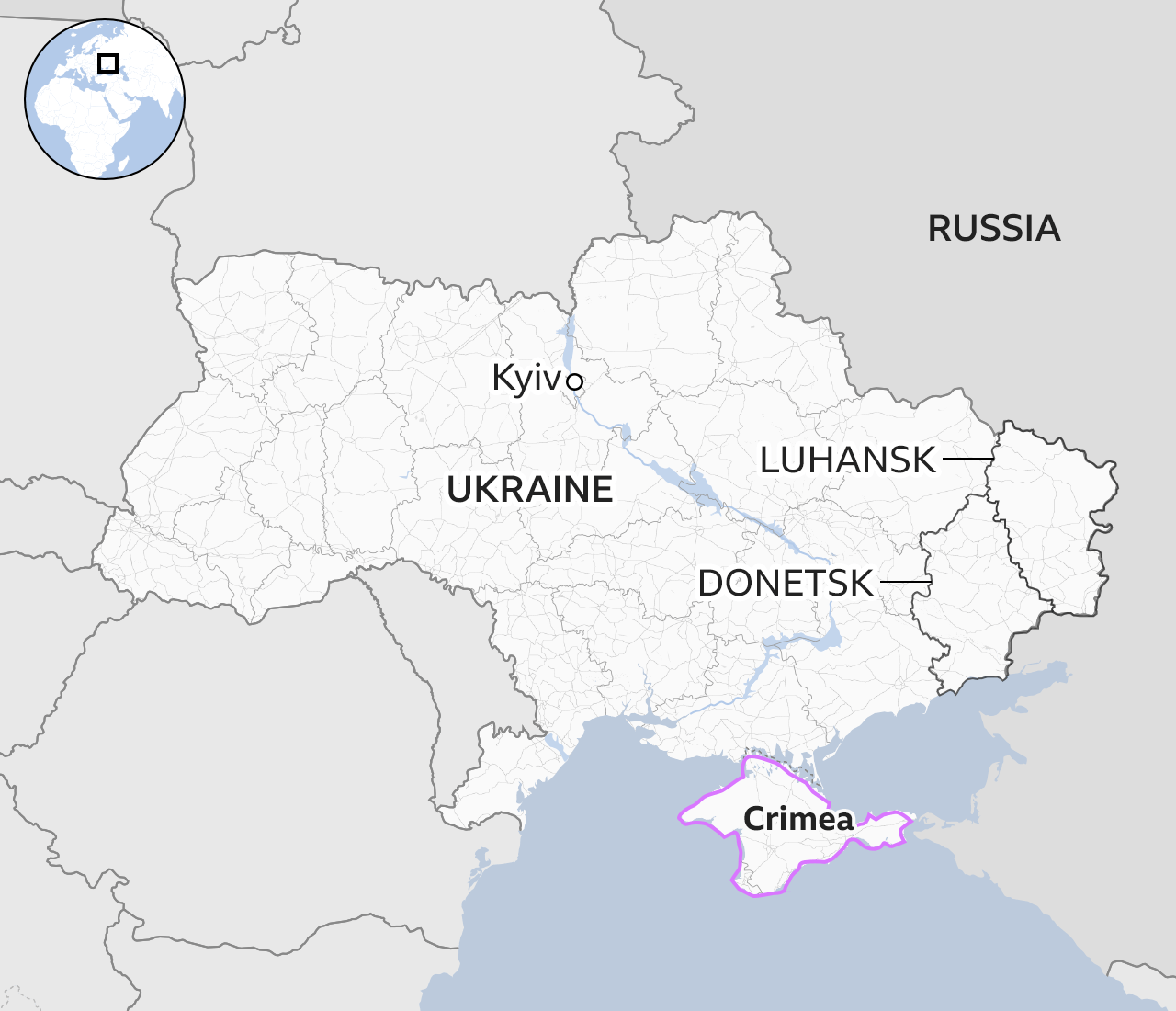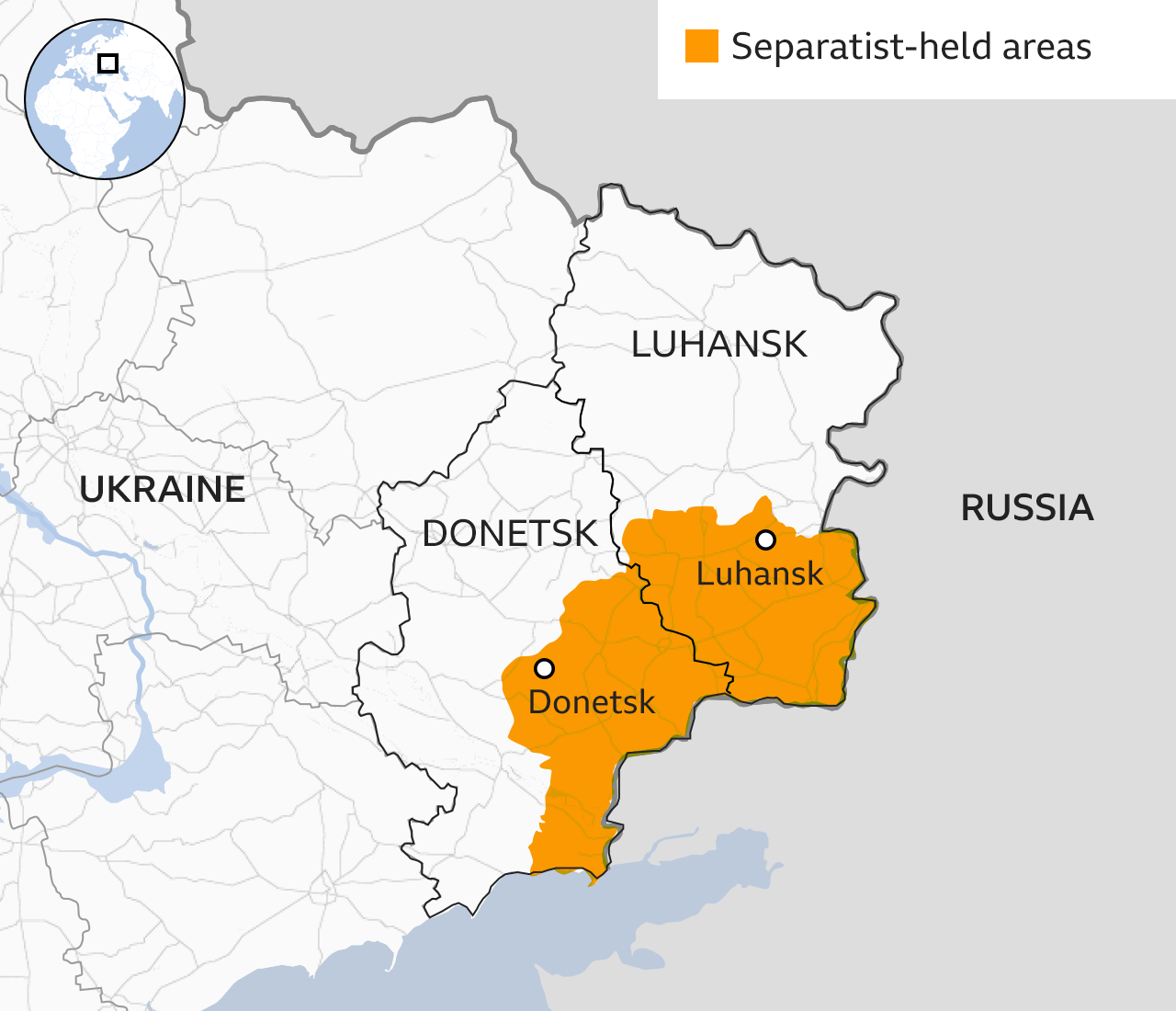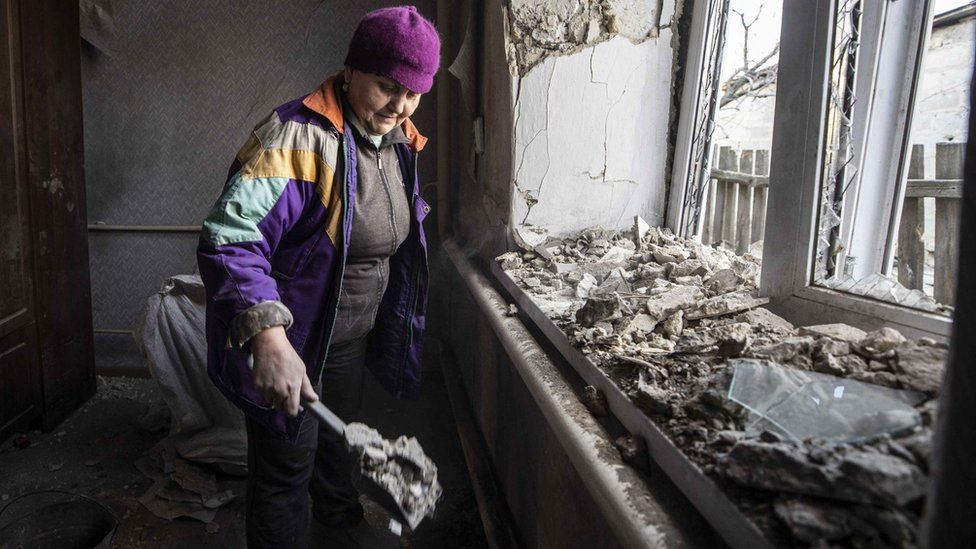
Ukraine has urged its citizens living in Russia to leave the country immediately amid growing fears of war.
In addition to the order affecting more than three million people, Ukraine mobilised its military reserves and was set to declare a state of emergency.
Ukraine’s moves came as Russian troops, ordered into two rebel-held regions in eastern Ukraine, were reportedly edging closer to the border.
Russia has begun evacuating its embassy in Kyiv and lowered its flag there.
Western countries have announced a series of sanctions against Russia for recognising the so-called people’s republics of Luhansk and Donetsk in eastern Ukraine as independent states and ordering troops in for “peacekeeping” operations – a claim rejected by the UN Secretary-General and decried as nonsense by the West.
Russia has been backing a bloody armed rebellion in eastern Ukraine for the past eight years. Some 14,000 people – including many civilians – have died in fighting since then.
US President Joe Biden said Russia’s latest actions marked the beginning of an invasion.
This video can not be played
To play this video you need to enable JavaScript in your browser.
Fears of a Russian attack have been rising for months, with more than 150,000 troops massed along Ukraine’s borders, according to US estimates.
Ukraine said it was ordering its citizens to leave Russia because “escalating Russian aggression” could limit consular assistance. Around two million Ukrainians live permanently in Russia and another one to two million more are thought to be staying there as migrant workers.
The military in Kyiv said it was calling up all reservists aged 18 to 60 for a maximum of one year.
The state of emergency is expected to last for 30 days and would give Ukrainian authorities the right to shield its population and statehood from possible danger. Reports suggest it may include the option to impose a curfew if needed.
Ukraine’s latest measures came as it was targeted by a large-scale cyber-attack on Wednesday, affecting government websites and banks.
A minister told Interfax-Ukraine news agency that services for several Ukrainian institutions, including the health, security and foreign ministries, were taken offline in a denial of service (DDOS) attack. Such attacks aim to overwhelm websites by flooding a network with fake traffic and preventing it from communicating normally.
- EXPLAINER: What sanctions are being imposed on Russia?
- THE BASICS: What does Putin want?
- LIVE: Follow latest developments
Russia has repeatedly denied planning to invade Ukraine, dismissing warnings as anti-Russian hysteria. However, President Vladimir Putin this week tore up the 2015 peace deal for eastern Ukraine and described the country as entirely created by Russia.
In a video address released on Wednesday, he said Russia’s interests and security were non-negotiable while insisting Moscow was “open for direct and honest dialogue”.
No further talks are planned, with France’s foreign minister and US Secretary of State Anthony Blinken both cancelling planned meetings with Russia’s foreign minister, Sergei Lavrov.
EU leaders have been invited for an extraordinary summit in Brussels on Thursday to discuss the crisis. In a letter to European Council members, President Charles Michel said: “The aggressive actions by the Russian Federation violate international law and the territorial integrity and sovereignty of Ukraine. They also undermine the European security order.”
Ukrainian President Volodymyr Zelensky has said he will consider cutting off diplomatic ties with Russia altogether over the crisis.
It is not yet clear if any Russian troops have yet crossed the border into Ukraine. However, US satellite imagery has highlighted several new troop and equipment deployments in western Russia, and more than 100 vehicles at an airfield in Belarus near Ukraine’s border.
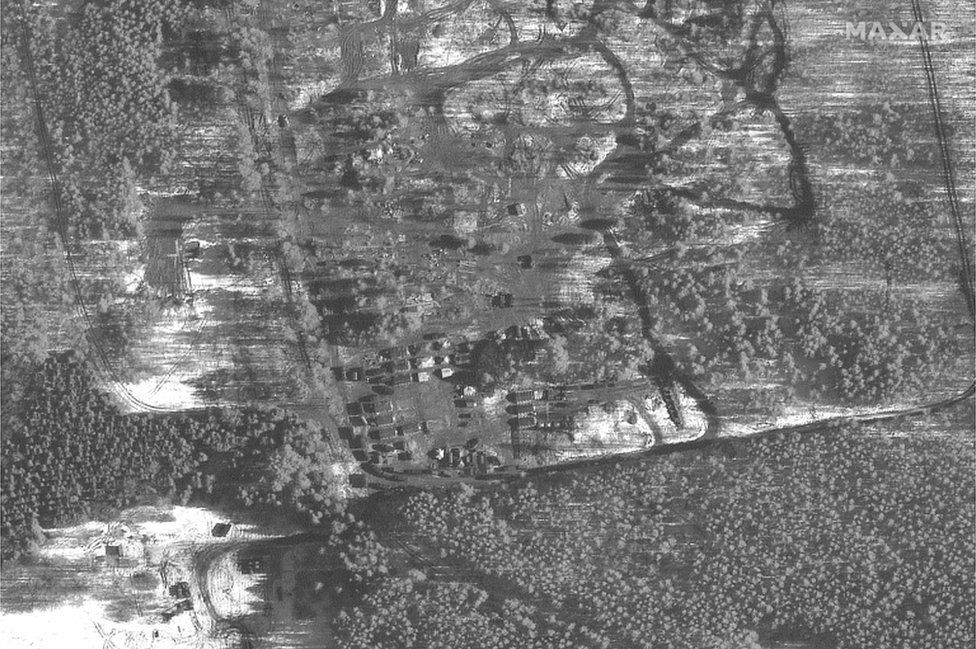
Meanwhile, in eastern Ukraine’s rebel-held areas, separatist leader Denis Pushilin said military mobilisation was gathering pace to counter what he described as Ukrainian aggression, adding that he could also ask Russia for help. Last week he accused Ukraine of planning an imminent offensive and ordered an evacuation of civilians.
Ukraine said no offensive had been planned and it later emerged Mr Pushilin’s order had been recorded two days earlier.
Appearing alongside him on Wednesday, a senior official from Russia’s ruling United Russia party said 93,000 people had so far been evacuated to Russia.

Are you in Ukraine? Are you or your family affected? Email haveyoursay@bbc.co.uk.
Please include a contact number if you are willing to speak to a BBC journalist. You can also get in touch in the following ways:
- WhatsApp: +44 7756 165803
- Tweet: @BBC_HaveYourSay
- Upload pictures or video
- Please read our terms & conditions and privacy policy
If you are reading this page and can’t see the form you will need to visit the mobile version of the BBC website to submit your question or comment or you can email us at HaveYourSay@bbc.co.uk. Please
-
- 6 hours ago
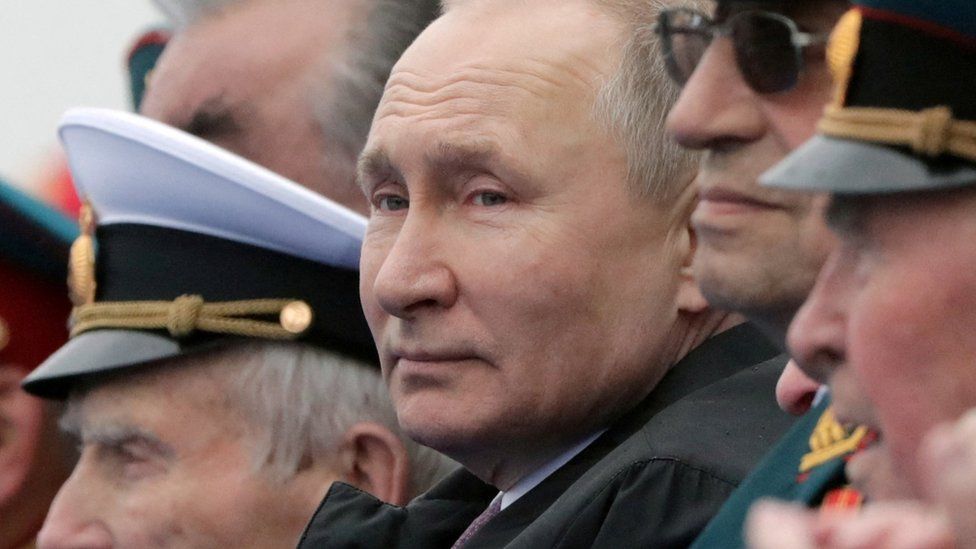
-
- 4 hours ago
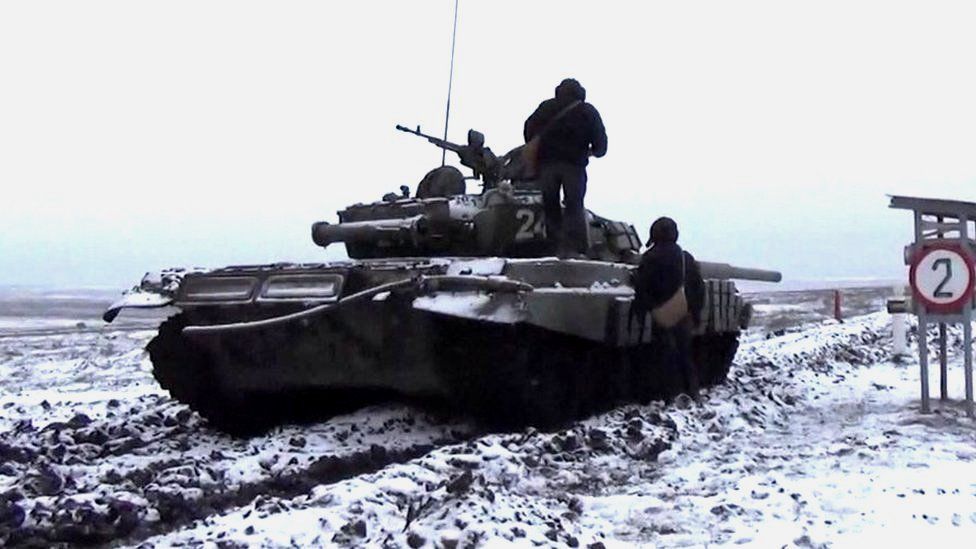
-
- 1 day ago
